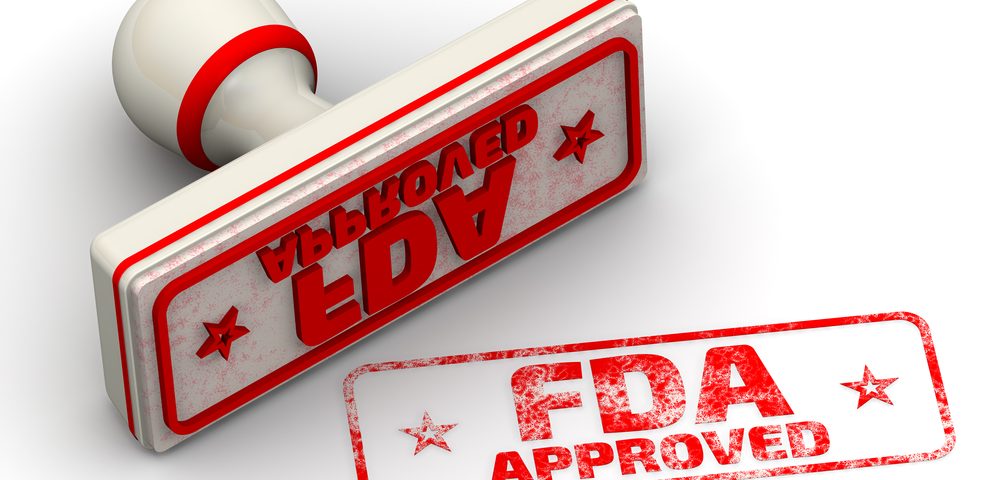The U.S. Food and Drug Administration (FDA) approved Kite Pharma‘s Yescarta (axicabtagene ciloleucel) for the treatment of relapsed or refractory large B-cell lymphoma patients who received at least two prior therapies.
Yescarta is now the second chimeric antigen receptor (CAR) T-cell therapy to be approved anywhere in the world, and the first for lymphoma patients – Kymriah (tisagenlecleucel) was approved in August for B-cell leukemia patients.
Yescarta’s indications include diffuse large B-cell lymphoma (DLBCL), primary mediastinal large B-cell lymphoma (PMBCL), high-grade B-cell lymphoma, and transformed follicular lymphoma.
“The FDA approval of Yescarta is a landmark for patients with relapsed or refractory large B-cell lymphoma. This approval would not have been possible without the courageous commitment of patients and clinicians, as well as the ongoing dedication of Kite’s employees,” Dr. Arie Belldegrun, MD, founder of Kite Pharma, said in a news release.
“We must also recognize the FDA for their ability to embrace and support transformational new technologies that treat life-threatening illnesses. We believe this is only the beginning for CAR T therapies,” he said.
Like most CAR T-cell therapies, Yescarta uses a patient’s own immune T-cells, which are collected and genetically modified in a lab to produce a chimeric antigen receptor, or CAR. This receptor optimizes T-cells to recognize and fight lymphoma cells with a surface protein called CD19. Then cells are multiplied and re-injected back into the patient, where they seek out and destroy cancer cells.
“With CAR T therapy, we are re-engineering a patient’s own immune system to detect and kill cancer cells, and the results have been impressive,” said Dr. Frederick L. Locke, MD, co-lead investigator of the ZUMA-1 clinical trial and vice chair of the Department of Blood and Marrow Transplant and Cellular Immunotherapy at Moffitt Cancer Center in Tampa, Florida.
“Many of the patients who received CAR T therapy had already relapsed several times with traditional treatments such as chemotherapy or hematopoietic stem cell transplant. Now, thanks to this new therapy many patients are in remission for months,” Locke said.
Yescarta is indicated for the treatment of adults with relapsed or refractory large B-cell lymphoma after two or more failed therapeutic approaches. However, the FDA states it is not approved for patients with primary central nervous system lymphoma.
The FDA is also requiring Kite to conduct a post-marketing observational study in Yescarta-treated patients to further evaluate the drug’s long-term safety, according to an FDA press release.
The approval was supported by data from the ZUMA-1 clinical trial (NCT02348216). The Phase 1/2 trial examined the effects of Yescarta in patients with DLBCL, PMBCL, or TFL, most with advanced-stage disease.
Of the 101 patients treated with a single infusion, 72% responded to therapy and 51% were in complete remission. After a median follow-up of 7.9 months, more than half of patients with complete responses were still disease-free.
While the gains are large, the therapy is not risk-free. Cytokine release syndrome (CRS), a severe systemic immune reaction that causes high fever and flu-like symptoms and is often life-threatening, was experienced by 13% of patients in the study. Yescarta also caused severe neurological events in one-third of participants.
As a result, Yescarta’s approval comes with a boxed warning and a risk evaluation and mitigation strategy (REMS), much like Kymriah’s approval. Treatment centers that use Yescarta must be specially certified by the FDA and have properly trained staff to recognize and manage severe side effects.
The training will be conducted by a multidisciplinary team put together by Kite this year. The team is providing final certification to 16 centers in the U.S., and is working to train 30 additional centers. They expect to reach an eventual target of 70 to 90 authorized centers across the country.
Kite has also developed Kite Konnect to support the therapy. The program will provide information and assistance to patients throughout the Yescarta treatment process, and includes information on insurance benefits and travel support.
The European Medicines Agency (EMA) is also reviewing an application seeking Yescarta’s approval for the same indication. The decision is expected in the first half of 2018.


